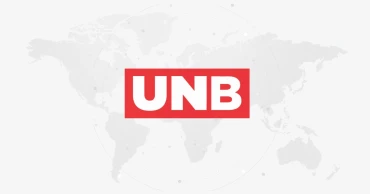Japanese Ambassador to Bangladesh
Election is Bangladesh’s internal affair, would refrain from commenting: Japanese Ambassador
Japanese Ambassador to Bangladesh Iwama Kiminori has said he would prefer to refrain from commenting on Bangladesh’s upcoming election, calling it “an internal affair”.
“I would refrain from making any comments on this. It is an internal affair of Bangladesh,” he said when a journalist wanted to know Japan’s position on the subject after bilateral relationship was elevated to “strategic partnership” during PM Hasina’s recent official visit.
Also Read: US calls upcoming national election an 'internal' affair of Bangladesh
The ambassador was briefing media at the Japanese Embassy on Wednesday on the recent meeting between Prime Minister Sheikh Hasina and her Japanese counterpart Fumio Kishida in Tokyo.
Iwama Kiminori made the remark when during the briefing, a journalist referred to the previous Japanese ambassador’s comment in November last year.
At the invitation of Japanese Prime Minister Kishida Fumio, Sheikh Hasina made an official visit to Japan and had a summit meeting on April 26.
Read More: Bangladesh, Japan focusing on ‘comprehensive and targeted-oriented’ partnership: Ambassador
2 years ago
2023 is the 1st year for next 50 years of Dhaka-Tokyo relations: Ambassador Iwama
Newly appointed Japanese Ambassador to Bangladesh Iwama Kiminori has said Japan, as a friend of Bangladesh since its inception, wants to consider possible cooperation and collaboration with all related actors to address challenges that Bangladesh is facing.
“The government of Bangladesh aims to become a developed country by 2041. In order to achieve this goal, Bangladesh is attempting to overcome various challenges such as climate change, health, and education,” he said in a message.
The Japanese envoy said the year 2023 marks the 51st year of diplomatic relations between Japan and Bangladesh. In other words, he said, 2023 is the first year for the next 50 years.
Read more: New Japanese Ambassador presents credentials to President
On December 26, he presented credentials to President Md. Abdul Hamid and began his duty as Ambassador Extraordinary and Plenipotentiary of Japan to Bangladesh.
“I feel honored to start undertaking my responsibility as Ambassador in the year of 2022, which marks the 50th anniversary of the establishment of diplomatic relations between Japan and Bangladesh,” he said.
Throughout the year, there must have been moments to look back at progress over the last half century, said the envoy.
Before coming to Bangladesh, the envoy said, he has learned that many Japanese have been involved and worked hard for the development of this country for 50 years as true friends of Bangladesh.
“I have also learned from a number of Japanese people who have close connections with Bangladesh that Bangladeshi people are not only working hard to develop the country but also possess great respect and affiliations for Japan and its nationals,” he said.
Ambassador Kiminori said he is committed to make his best effort to strengthen the friendly relations, following this wonderful suit.
Most people he spoke to prior to his assignment, especially those in the economic field, expressed their interest in Bangladesh's development over the past few years and their motivation to further strengthen relations with Bangladesh.
Read more: Japan is a true friend , trusted partner of Bangladesh since independence: Envoy
In particular, he said, in recent years, many mega projects contributing to the improvement of economic infrastructure are going on under the Bay of Bengal Industrial Growth Belt initiatives (BIG-B).
‘Given this situation, the importance of Japan, as a major and largest development partner of Bangladesh, has been prospering,” said the envoy.
In addition, Bangladesh’s economy has been steadily growing and the country is to graduate from LDC by 2026.
Due to this rapid economic growth, the envoy said, there are increasing expectations from Japanese business circles to shift their interests from aiding to investing.
“As Ambassador, I would like to contribute to Bangladesh’s further economic growth by listening to and supporting Japanese companies interested in doing business in this country,” he said.
Despite the rising number of Japanese companies and Japanese nationals in Bangladesh, the memory of the terrorist attacks in 2016 remains strong, the Ambassador said.
“It is one of the most important responsibilities of the Embassy to gather and share information on the security situation in Bangladesh,” he said.
Ambassador Kiminori said they are committed to keep providing relevant information in a timely and appropriate manner.
Before arriving in Bangladesh, the envoy has come to know that Bangladesh has a rich culture passed on through many centuries with its Bengali language identity.
“During my tenure, as Ambassador, I am determined to learn the culture and history of Bangladesh and at the same time increase the understanding of Japan in Bangladesh,” he said.
END/UNB/MK/FH
3 years ago
Outgoing Japanese envoy hopes Bangladesh’s democratic process will continue under PM Hasina’s leadership: Deputy press secretary
Outgoing Japanese Ambassador to Bangladesh ITO Naoki today hoped that under the leadership of Prime Minister Sheikh Hasina, peace, stability, socioeconomic development and democratic process of Bangladesh will continue.
He conveyed the message while calling on Prime Minister Sheikh Hasina at her official residence Ganabhaban.
PM’s deputy press secretary KM Shakhawat Moon briefed reporters after the meeting.
He said that both also discussed the Rohingya issue and agreed that the more than one million forcibly displaced Myanmar citizens are a huge burden for Bangladesh.
Read more: Momen praises Japan as its outgoing envoy Naoki meets him
They put emphasis on the Rohingyas’ safe return to their homeland in Myanmar.
The Prime Minister highly appreciated Japan’s assistance to set up shelter for Rohingyas in Bhashanchar island after developing it.
Prime Minister Sheikh Hasina urged the businessmen of Japan to come up with larger investments as Bangladesh is a lucrative place for investment.
The Prime Minister hoped that the bilateral trade between Bangladesh and Japan would be enhanced further.
She appreciated Japan's support in implementing mega projects of Bangladesh such as Matarbari deep sea port, third terminal of Hazrat Shahjalal International Airport in Dhaka and Dhaka Metro Rail.
The Prime Minister sought continuous support in Bangladesh's development while the Japanese envoy assured of always standing beside the country in its development efforts.
Read more: Japan will continue to work toward resolution of Rohingya issue: Ambassador
Sheikh Hasina also sought Japanese cooperation in developing a dedicated tourist zone for foreigners.
The Japanese envoy described it as a good initiative and expressed eagerness to cooperate.
Sheikh Hasina congratulated the Japanese envoy for successful completion of his tenure in Bangladesh and his role in enhancing bilateral trade between Bangladesh and Japan.
The Japanese envoy said the foundation of the relationship between Bangladesh and Japan had been forged through Father of the Nation Bangabandhu Sheikh Mujibur Rahman's visit in 1973.
PM's Principal Secretary Md Tofazzel Hossain Miah was present in the meeting.
3 years ago
BSEZ can provide investors best possible environment in region: Ito Naoki
Outgoing Japanese Ambassador to Bangladesh Ito Naoki has said the just-launched Bangladesh Special Economic Zone (BSEZ) at Araihazar in Narayanganj will undoubtedly attract investment not only from Japanese companies but also from other international companies.
He said the BSEZ fully meets the international standard in terms of facilities and infrastructure SEZ has to offer.
Read more: PM opens Japanese Economic Zone: Expected to draw $1.5bn investment, create over 1 lakh jobs
“I expect more than 100 companies will operate here in the future, with US$ 1.5 billion investment in total. BSEZ can provide prospective investors with the best possible environment in the region,” he said on Tuesday.
Prime Minister Sheikh Hasina officially opened Bangladesh Special Economic Zone, also known as the “Japanese Economic Zone” at Araihazar in Narayanganj. She joined the event virtually from her official residence Ganabhaban in Dhaka.
There have already been inquiries from approximately 30 Japanese companies and 10 foreign companies looking at the possibility of investing in the BSEZ.
In 2026, Ambassador Naoki said, Bangladesh will graduate from the LDC status and it is a wonderful feat for Bangladesh under this government.
“Then, the country aims to become a developed country in 2041 by achieving Vision 2041. I want to reiterate that Japan will continue to stand by Bangladesh in its development journey and work to build a win-win partnership for our prosperous future,” he said, adding that the success of BSEZ will surely guide them to get there.
The Ambassador said he will return to Japan next week completing his tenure in Dhaka and he put in his best efforts over the last three years for the development of Bangladesh.
Read more: Japan will continue to work toward resolution of Rohingya issue: Ambassador
“I sincerely hope that the dream of Bangabandhu to build Sonar Bangla and a happy and prosperous country will be realized,” he said.
Bangladesh Economic Zones Authority (BEZA) Executive Chairman Shaikh Yusuf Harun and President and CEO, Sumitomo Corporation Masayuki Hyodo also spoke.
BSEZ is the first Special Economic Zone in Bangladesh designed and developed by Japanese companies. Eight years have passed since former Prime Minister Shinzo Abe and Prime Minister Sheikh Hasina shared their intention to cooperate for economic zone development.
“I am delighted that our leaders' intention was finally materialized, overcoming all the challenges we faced, including the Covid-19,” said the Ambassador.
“This is the Japanese Economic Zone. But, BEZA gave the name 'Bangladesh Special Economic Zone (BSEZ).’ I believe BEZA and the government did so with the expectation that it would become the flagship SEZ in Bangladesh,” he said.
Naoki said it will play a pivotal role in boosting FDIs and become a symbol of the growing business partnership between Japan and Bangladesh.
This month, following the opening of BSEZ, Dhaka Mass Rapid Transit (MRT) Line 6 will start commercial operation.
MRT Line 1 and Line 5 North will start construction next year in 2023. Then, the Hazrat Shahjalal International Airport Expansion of terminal 3 will do a soft-opening next October, said the Japanese Ambassador.
Read more: Momen ‘not worried’ about Japanese Ambassador’s remarks, calls him a ‘simple, good person’
Matarbari Deep Sea Port is also under construction, with the prospect of completion of the Power-plant in 2024, and Bangabandhu Railway Bridge will open in the same year, he said.
These quality infrastructure projects by JICA will transform the nation and significantly enhance Bangladesh's economic opportunities, he said.
The ambassador said Bangladesh needs to continuously address some challenges to improve the business climate and Japan and Bangladesh should join hands to that end.
“It is noteworthy that BSEZ has declared to be a corruption-free SEZ, showing its determination to eliminate corruption for a fair and favorable investment and business environment,” he said.
BEZA Executive Chairman Shaikh Yusuf Harun said the economic zone will help attract US$ 1.5 billion investment and create employment opportunities for over 100,000 people.
Sumitomo Corporation President and Chief Executive Officer Masayuki Hyodo said this economic zone is so special and is strongly supported by the two governments and private sectors.
“We have more than 30 years of experience in this business and we have been actively engaged in various infrastructure projects in Bangladesh,” said the President and CEO of the Corporation.
Hyodo said they have been contributing to Bangladesh for sustainable economic development and prosperity.
3 years ago
It’s my strong hope to see free, fair election in Bangladesh: Ambassador Naoki
Japanese Ambassador to Bangladesh Ito Naoki on Monday said they expect that the next national election in Bangladesh will be held in a “free and fair” manner with the participation of all major political parties.
“We expect the next election will be a better one. Free and fair elections need to be done here. That’s my strong hope,” he said while responding to a question at an event titled “Meet the Ambassador” held in a Dhaka hotel.
The Ambassador said he knows that the Election Commission is working for a free and fair election and the government of Bangladesh is also telling that a free and fair election will be conducted. “It’s very important.”
Read more: Myanmar situation doesn't allow full-scale Rohingya repatriation now: Japan
At the same time, the envoy said, this is something that the political parties should decide but the expectation is that the election will be a participatory one and the major political parties will participate in it.
Naoki said he heard about the example of “ballot box stuffing” and some police stuffed the ballot box the previous night which is something he did never hear in any other country.He said “ballot box stuffing” should never be repeated.
Recalling 2018 election, Ambassador Naoki said the Japanese Embassy in Dhaka had issued a statement of concern which was very unusual for his country though it was focused more on violence.
Read more: Japan wants "strategic" partnership with Bangladesh through practical cooperation
Centre for Governance Studies (CGS) hosted the event in collaboration with the Friedrich-Ebert-Stiftung (FES) Bangladesh.
Zillur Rahman, Executive Director of the Centre for Governance Studies moderated the programme.
3 years ago
Myanmar situation doesn't allow full-scale Rohingya repatriation now: Japan
Japanese Ambassador to Bangladesh Ito Naoki on Monday (November 14, 2022) said it is unlikely to see a full-scale Rohingya repatriation anytime soon due to the situation in Myanmar at this moment.
"It'll be very difficult to see repatriation of Rohingyas in full-scale soon. Unless you see the improvement of situation in Myanmar, it'll be very difficult for us to see their repatriation to Myanmar," he said.
They Ambassador said Japan is communicating with the Myanmar military and Myanmar needs to halt violence, release detainees and restore the democracy there.
He, however, said they may be able to start pilot repatriation at this moment, not full-scale repatriation of Rohingyas to their homeland.
Read more: Russian FM Lavrov’s Visit: Dhaka to focus on energy cooperation, Rohingya issue
Bangladesh is now hosting over 1.1 million Rohingyas in Cox’s Bazar and Bhasan Char and not a single Rohingya was repatriated over the last five years.
"More than five years have passed. The situation is very unfortunate. Repatriation is of course the priority," said the Ambassador, adding that they are ready to work with the government of Bangladesh for repatriation of the Rohingyas.
Unfortunately, he said, the situation in Myanmar will not allow the early repatriation of the Rohingyas.
The envoy said this is a crucial challenge for the international community.
Read more: Bangladesh seeks OIC’s help to continue Rohingya genocide case
Japan has been cooperative to Bangladesh government and appreciates its efforts and generosity, he added.
The Ambassador was responding to a question at an event titled “Meet the Ambassador” held in a Dhaka hotel.
Centre for Governance Studies (CGS) hosted it in collaboration with the Friedrich-Ebert-Stiftung (FES) Bangladesh.
Zillur Rahman, Executive Director of CGS moderated the programme.
Read more: EU announces € 3m for Rohingyas in Bhasan Char
3 years ago
Japan wants "strategic" partnership with Bangladesh through practical cooperation
Japanese Ambassador to Bangladesh Ito Naoki on Monday said his country wants to elevate the bilateral ties with Bangladesh to a "strategic" level adding more elements like defence and security areas to the growing relations.
"We have comprehensive partnership. We intend to elevate it. Hopefully we can agree to call our partnership a strategic partnership," he said referring to likely discussion on the issue during Prime Minister Sheikh Hasina’s upcoming visit to Japan.
Ambassador Naoki expressed his country’s interest to export defence related equipment to Bangladesh which will further be discussed between the two sides.
Read more: Mecca Route Initiative agreement to make Bangladeshi pilgrims' journey easier: Shahriar
Sharing Japan's vision for Free and Open Indo-Pacific (FOIP), the envoy said this is something very comprehensive but not against any country or contain any country.
He said Japan considers Bangladesh as a partner of FOIP. "We will continue to promote our practical cooperation."
Ambassador Naoki said infrastructure development, connectivity, maritime security and capacity building of security forces are part of the practical cooperation that they promote.
Regarding investment, the envoy said there are challenges but hopefully there will be improvements in terms of investment environment.
Read more: Russian FM Lavrov’s Visit: Dhaka to focus on energy cooperation, Rohingya issue
The Ambassador was speaking at an event titled “Meet the Ambassador” held in a Dhaka hotel.
Centre for Governance Studies (CGS) hosted it in collaboration with the Friedrich-Ebert-Stiftung (FES) Bangladesh.
Zillur Rahman, Executive Director of the Centre for Governance Studies moderated the programme.
Bangladesh will seek Japan’s “stronger engagement” in its development efforts through “investment and financing” in major projects during Prime Minister Sheikh Hasina’s forthcoming visit to Japan slated for November 29-December 1, 2022 at the invitation of Japanese Prime Minister Fumio Kishida.
Earlier, Foreign Minister AK Abdul Momen told UNB that Japan is a "good investor" for Bangladesh, and they are implementing major projects.
Read more: Bangladesh can benefit immensely from economic partnerships with Africa
“The basic idea is Japan is capable of financing and they always finance without any tough conditions. They have technology, too,” Momen said.
In May, 2014, former Prime Minister Shinzo Abe held a summit meeting with Sheikh Hasina in Tokyo and they jointly launched the “Bangladesh-Japan Comprehensive Partnership.”
In September same year, Abe held a summit meeting with Hasina in Dhaka.
Japan recognised Bangladesh as a sovereign nation on February 10, 1972, and the year 2022 marks the 50th anniversary of the establishment of diplomatic relations between Bangladesh and Japan.
3 years ago
Japan envoy meets Mirza Fakhrul, discuss latest political situation
Japanese Ambassador to Bangladesh, Ito Naoki, met BNP Secretary General Mirza Fakhrul Islam Alamgir today, a day after some leaders and activists of the party were attacked in Dhaka and Cumilla.
The meeting which started at 10 am at BNP Chairperson’s Gulshan office ended around 11:30 am.
BNP standing committee member Amir Khosru Mahmud Chowdhury and organising secretary Shyama Obaid were present at the meeting.
Read:BNP holds candlelight vigil amid attack in city
Talking to reporters after the meeting, Amir Khosru, also convener of BNP's foreign affairs committee, said Bangladesh-Japan relationship is long-standing.
He said they discussed various issues of bilateral cooperation between the two countries alongside the latest political situation in Bangladesh.
Asked whether the latest attacks on BNP leaders and activists came up for discussion, he said, “I have already said we talked about contemporary political issues.”
Read: BNP's candlelight vigil in Banani attacked by ruling party activists
Last night, some BNP leaders, including standing committee member Selima Rahman, joint secretary general Syed Moazzem Hossain Alal, organising secretary Shyama Obaid and executive committee member Tabith Awal, suffered injuries as ruling party activists reportedly attacked a candlelight vigil of the opposition party on Kamal Atartuk Avenue, the main thoroughfare in Dhaka’s Banani.
Tabith, a BNP foreign affairs committee member, was admitted to United Hospital for treatment with a head injury.
Earlier in the day, four people including BNP Vice Chairman Barkatullah Bulu and his wife, were injured in an attack by miscreants at Monohorganj upazila in Cumilla.
Read Japan seeks stronger cultural ties with Bangladesh engaging younger generation
3 years ago
Japan to work for development and stability in Bangladesh: Ambassador
Japanese Ambassador to Bangladesh Ito Naoki has said Japan will keep working towards improving regional connectivity through infrastructure projects in the country.
At the same time Tokyo will support Dhaka’s efforts at development and the stability, the ambassador said in a message marking two years as his country’s envoy in Bangladesh on Tuesday.
"Japan will promote practical cooperation with Bangladesh to realize the vision of "Free and Open Indo-Pacific (FOIP)" for peace, stability, and prosperity in the region," he said.
Terming Japan the largest development partner of Bangladesh, the envoy said large-scale infrastructure projects that symbolize the country’s rapid economic growth are steadily underway.
The flagship projects are Dhaka Metro, expansion of Hazrat Shahjalal International Airport, Jamuna Railway Bridge, and Matarbari Deep Sea Port.
A trial run of Dhaka Metro Line 6 began in August, which is expected to open by the end of 2022.
"At the same time, we will redouble our efforts to improve the investment climate for Japanese companies as they expand their investment and their business. We will continue to address customs clearance, overseas remittance, import transaction settlement, and taxation challenges," said the ambassador.
Read: Japan-Bangladesh focusing on infrastructure, business ties: Ito Naoki
Resolving the issue of the Rohingya refugees is also crucial from the perspective of realizing FOIP, he said.
"The recent situation in Myanmar since the coup last February has made the repatriation of refugees more difficult," said the envoy.
As the crisis is protracted, he said, it is urgent to improve the condition of refugee camps in Cox's Bazar, including education, skill training, and livelihood.
The envoy said they welcome the MoU recently signed between the government of Bangladesh and UN refugee agency to cooperate in the relocation plan of the refugees to Bashan Char Island.
"Japan will work with the international community for humanitarian assistance and the repatriation of the displaced people," Naoki said.
Ahead of the 50th anniversary of the establishment of bilateral diplomatic relations next year Japan’s new Prime Minister Kishida Fumio wrote a letter to Prime Minister Sheikh Hasina stating that he would strive to deepen cooperation between the two countries.
Japan will work "vigorously" to deepen understanding of Japan further, expand people-to-people exchange and promote Japanese culture in Bangladesh, by holding the anniversary events in 2022, said the envoy.
For the sake of the safety and security of Japanese people living in Bangladesh and visitors to Bangladesh, he said, the embassy will make every effort to build a better relationship between Japan and Bangladesh in all fields, while asking for your opinions and cooperation.
Read: Ambassador Ito sees 5 challenges ahead to elevate Dhaka-Tokyo ties
The COVID-19 pandemic significantly impacted economic activities and cultural and people’s exchanges between Japan and Bangladesh during the one and half years.
"Even amidst the COVID-19 pandemic, it has been a year of deepening friendly and cooperative relations between the two countries," said the ambassador.
From July to August, Japan provided more than 3 million doses of AstraZeneca vaccine with Bangladesh.
"The gift from the Japanese people was to meet the needs of the people of Bangladesh facing the threat of COVID-19 infection," said the ambassador adding that they will also continue their efforts to make the vaccination available further to Japanese citizens in Bangladesh.
4 years ago
UN arrival at Bhasan Char to ease better int’l coordination for repatriation: Japan
Seeking sustained international pressure on Myanmar to achieve the Rohingya repatriation goal, Japanese Ambassador to Bangladesh has said the signing of an MoU between Bangladesh and the UNHCR to begin UN engagement in Bhasan Char will pave the way for even better cooperation and coordination on the Rohingya repatriation process.
“It’s very important that the international community puts pressure on Myanmar as part of the repatriation work. How? I think it depends on the individual country,” he told diplomatic correspondents at “DCAB Talk” on Thursday emphasizing the importance of peace and stability in the region.
Read: Japan to provide more vaccine doses through COVAX in Nov
Diplomatic Correspondents Association, Bangladesh (DCAB) organized its flagship programme at Jatiya Press Club. DCAB President Pantho Rahaman and its General Secretary AKM Moinuddin also spoke at the event.
Responding to a question on how the international community can put pressure on Myanmar, Ambassador Naoki said there has been pressure coming through UN resolutions which is of course one way while the other possibility is direct contact or direct representation.
“I would say Japan has been doing this by making the use of the channels that Japan has established. So, we directly communicated with the Myanmar military side,” he said.
The Japanese envoy said Japan might not have played a very prominent role but he thinks Japan has been playing a very important role in its own way. “Japan has been doing what Japan can do. We’ll continue to do that.”
4 years ago
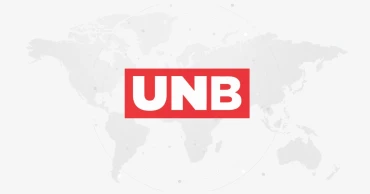
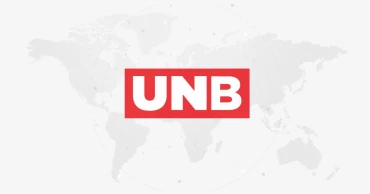
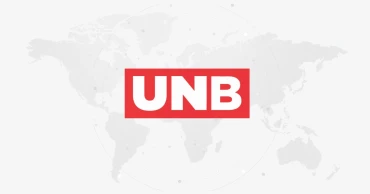
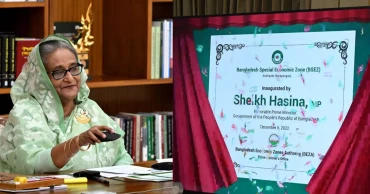
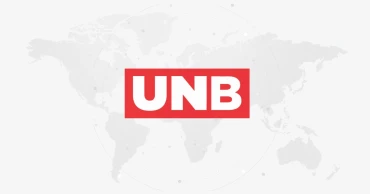
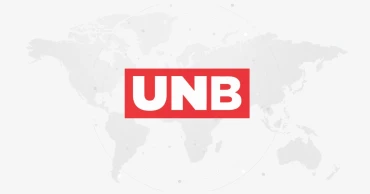
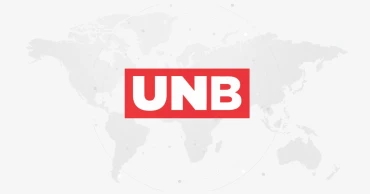
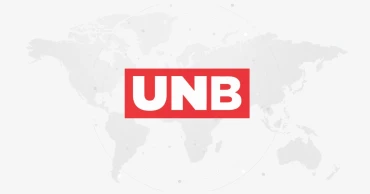
.jpg)
